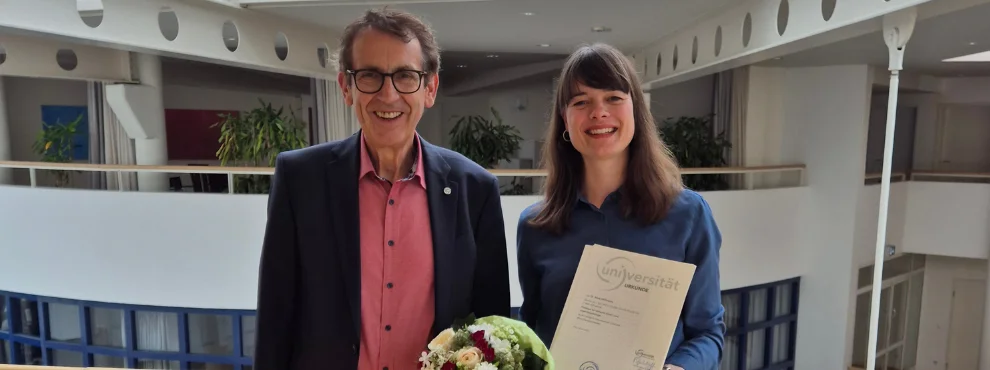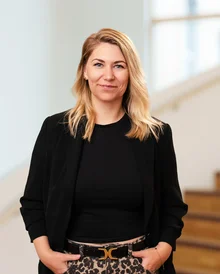What happens when children and adolescents can no longer bear to look at their reflection?
Prof. Dr. Anne Möllmann has been appointed to the professorship for Clinical Child and Adolescent Psychology at the University of Witten/Herdecke.

How do children and young people see themselves - and what does their self-image do to their psyche? This is what Prof Dr Anne Möllmann is investigating. She has been appointed Professor of Clinical Child and Adolescent Psychology at Witten/Herdecke University (UW/H). One focus of her research is body dysmorphic disorder. In this disorder, those affected fixate on perceived flaws - such as a nose that is "too big" or "ugly" skin - even though others do not even notice them. "We want to understand at what point self-perception becomes distorted - and how this influences the development of mental illness," explains Prof Dr Möllmann.
A current research project is focussing on the question of how negative body images can be recognised at an early stage and how countermeasures can be taken. In addition to questionnaires, the researchers are also using various techniques: eye tracking shows where people look when they look in the mirror. Motion capture systems record how someone moves. High-resolution cameras make subtle changes visible - for example, how someone approaches others.
When noises become a pain
Prof Dr Möllmann is also researching misophonia - a greatly reduced tolerance to certain noises, such as chewing or breathing. "Those affected experience severe tension, anger or disgust. This severely restricts their everyday life," she says. The disorder has hardly been researched and is not officially recognised as a mental illness. Nevertheless, the level of suffering can be so high that therapeutic help becomes necessary. Möllmann wants to set up targeted services for this in the psychotherapeutic outpatient clinic for children and adolescents at the Centre for Mental Health and Psychotherapy (ZPP).
How to help children - and listen to them
In teaching, Prof Dr Möllmann focuses on prevention and child-friendly psychotherapy. Students learn how to recognise mental disorders early on and treat them effectively. A central goal: relationship skills. Anyone who works with children, adolescents and their parents needs more than specialised knowledge; he or she must be able to build trust. This is exactly what the students practise, from the first contact to therapeutic support.
As academic director of the psychotherapeutic outpatient clinic for children and adolescents at the ZPP, Möllmann also supervises the practical training in teaching therapeutic primary care for child and adolescent psychotherapy.
Photos for download
Contact person

Svenja Malessa
Press Officer
Administration | Communication & Marketing
Alfred-Herrhausen-Straße 48
58455 Witten
Room number: 2.F05
